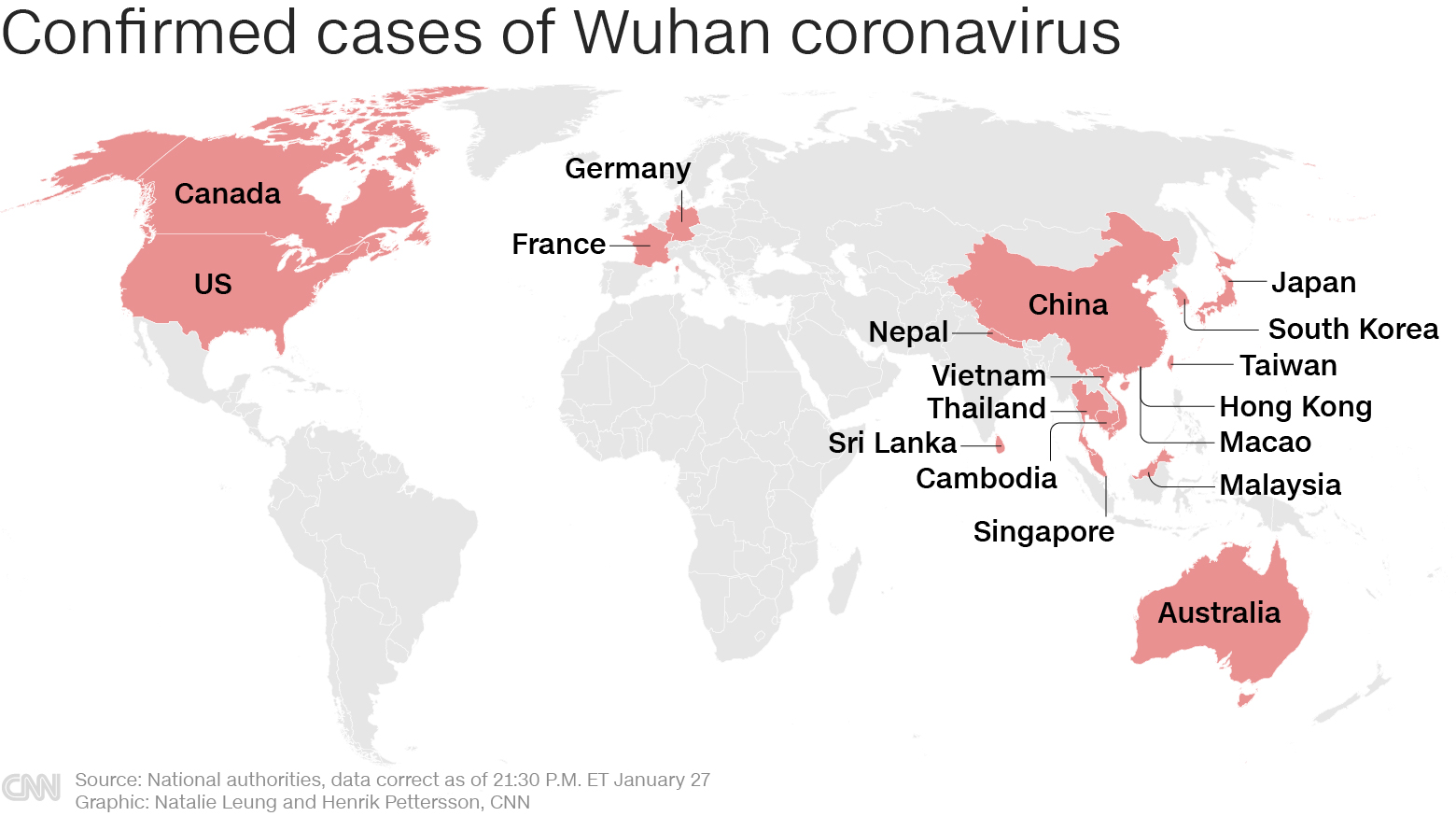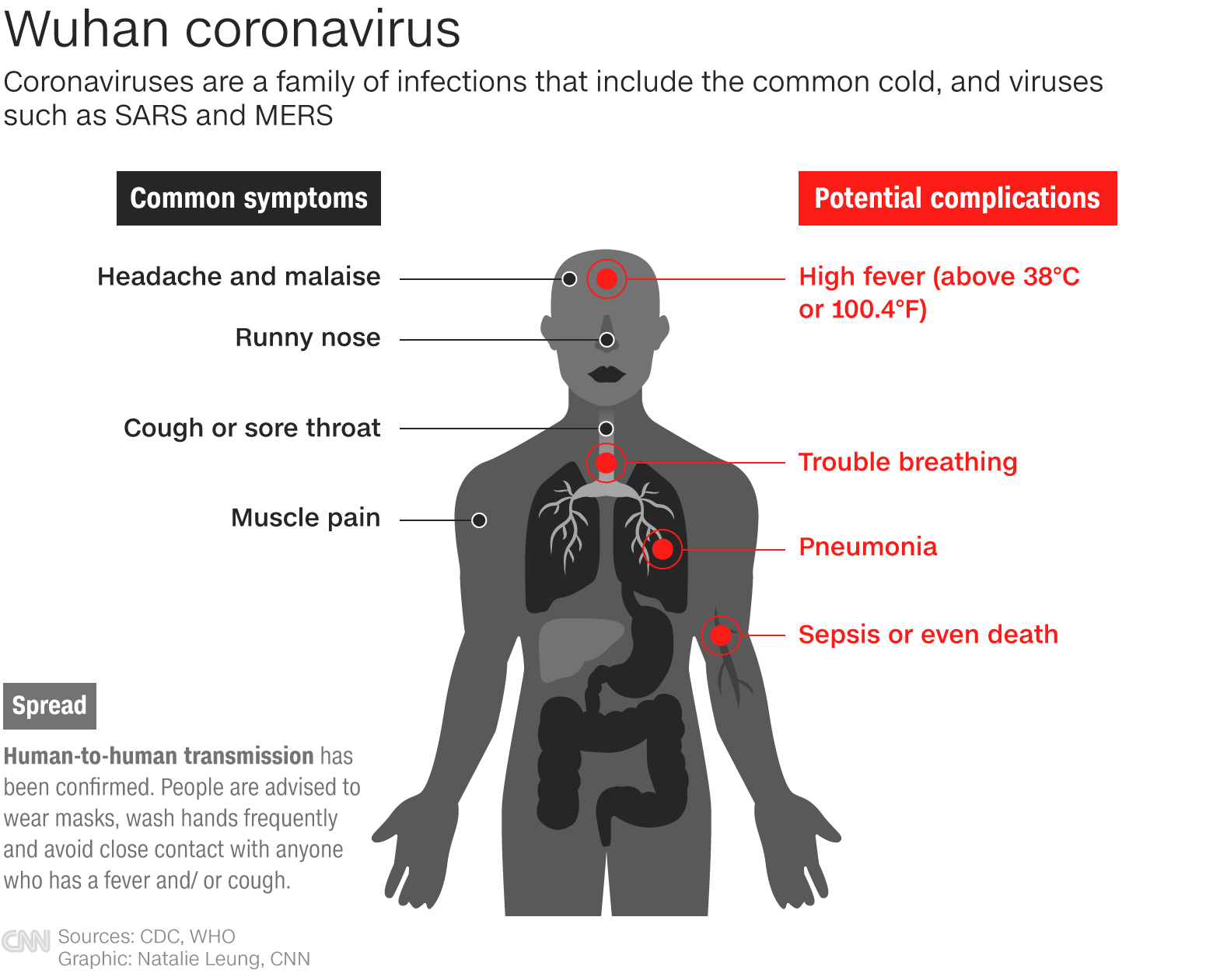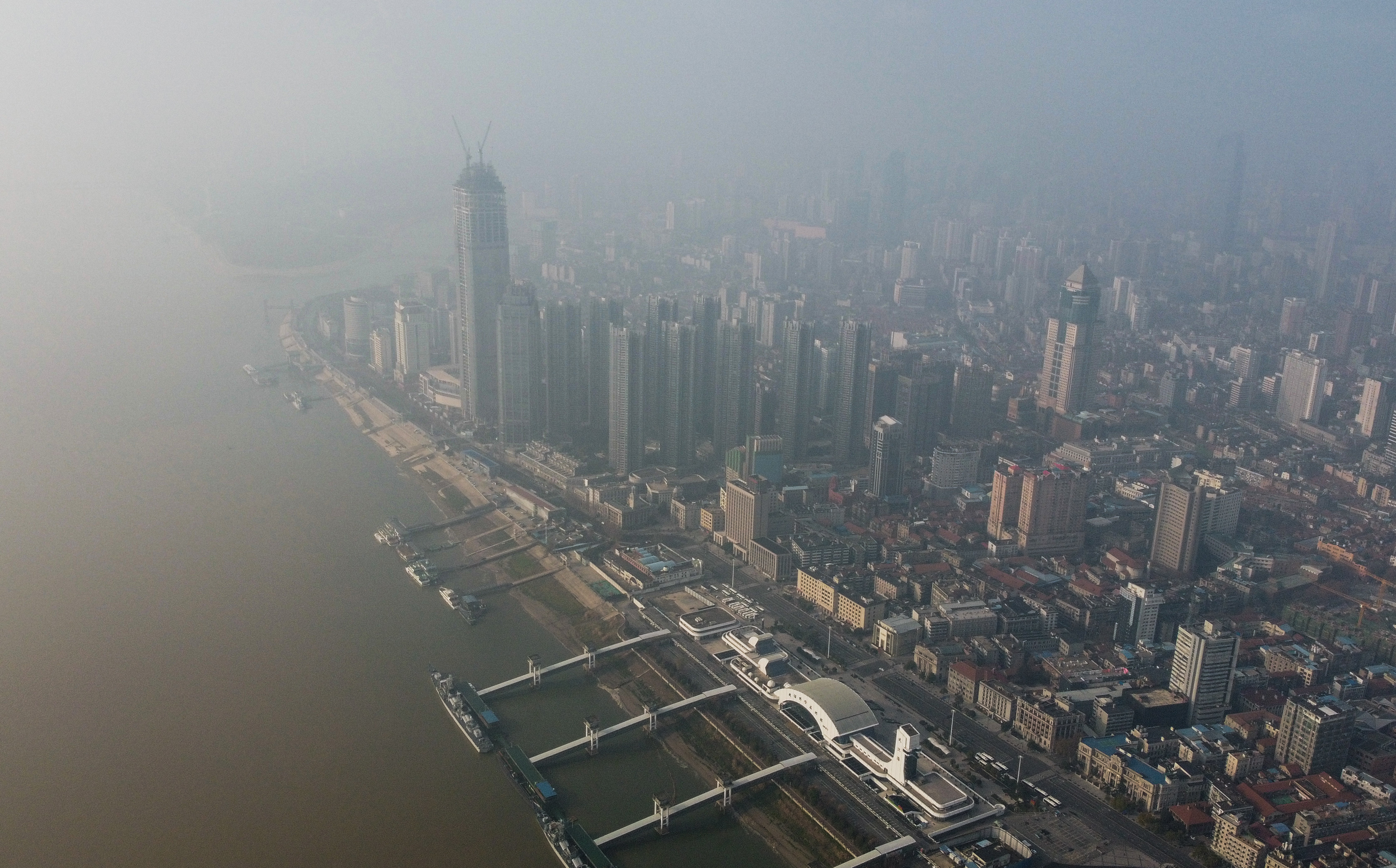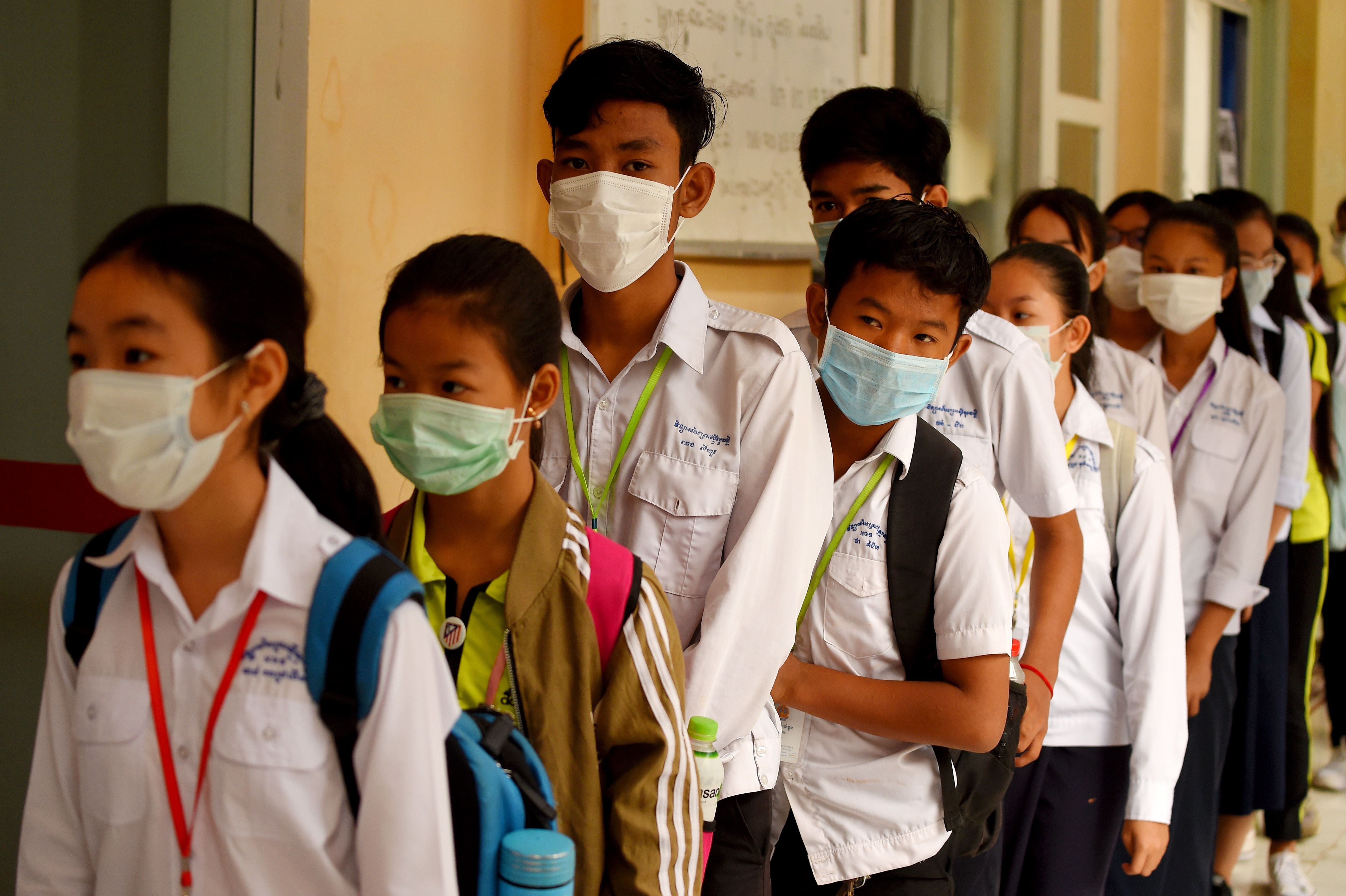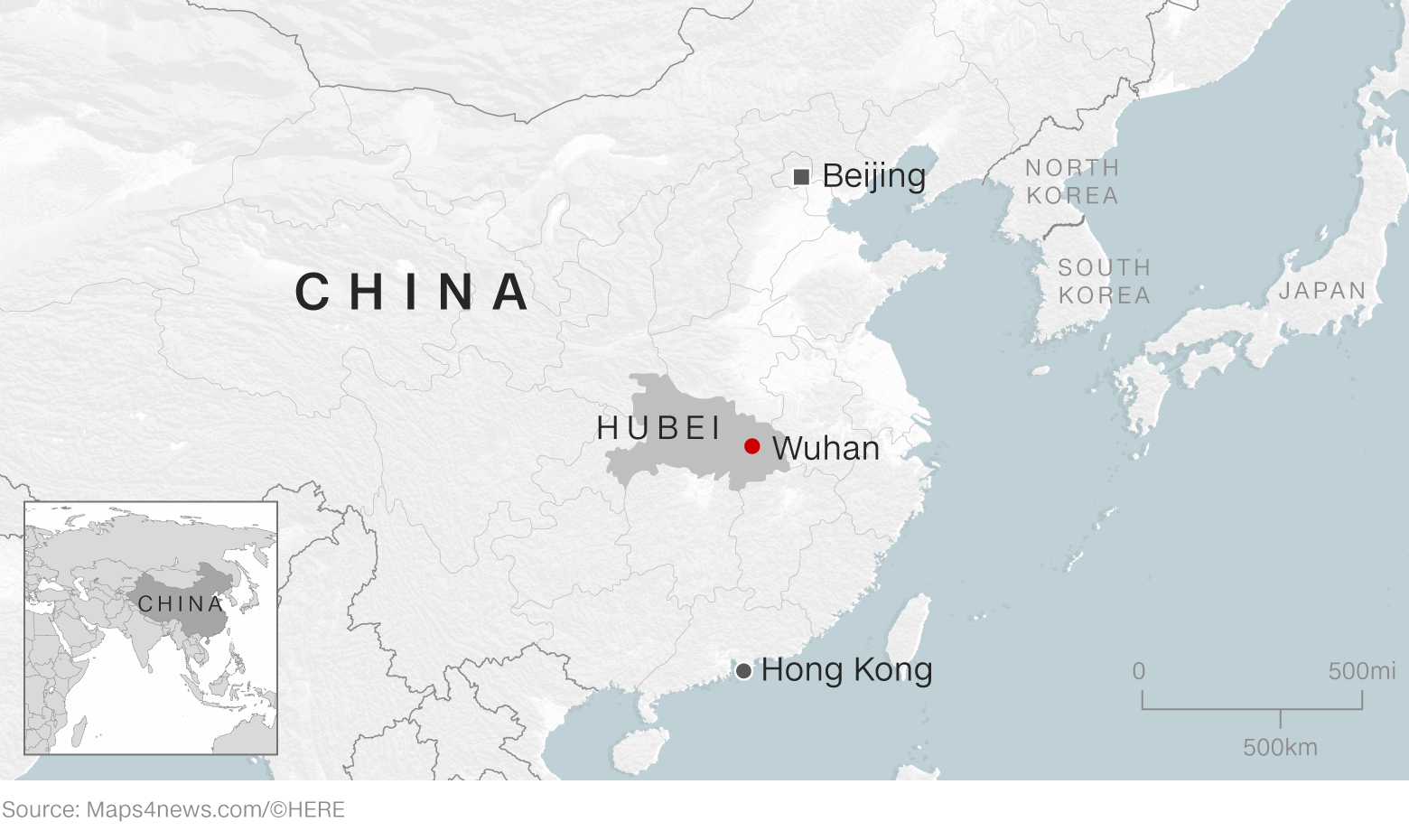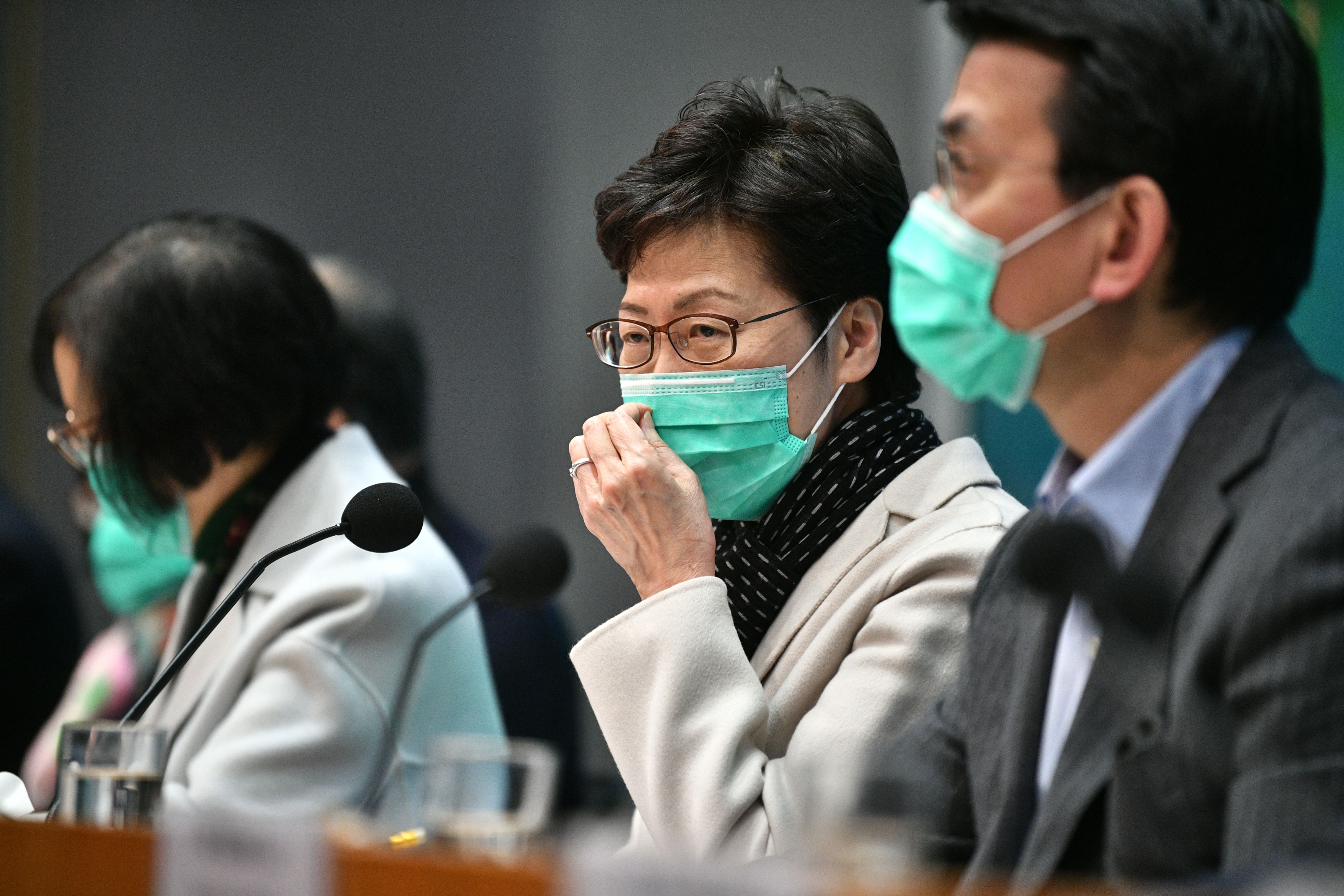
Hong Kong's Chief Executive Carrie Lam said Tuesday that the government will "temporarily" close some of its borders with mainland China and travel permits to mainland Chinese tourists will stop being issued.
Border crossings: Four land border will close from midnight local time on Thursday January 30 "until further notice," Lam said.
That means people will not be able to travel between Hong Kong and the mainland using the West Kowloon Station, Hung Hom, Sha Tau Kok and Man Kam To.
Two water borders -- the Tuen Mun Ferry Terminal and the China Ferry Terminal -- will also be shut.
Planes: Flights from mainland China will decrease by 50%.
Trains: Lam said that cross border train services from West Kowloon -- which operates the high speed rail to the mainland -- and Hung Hom station will be temporarily stopped.
Ferries: All cross-border ferry services will be stopped, apart from ferries to Macao.
Buses and coaches: Bus and coach services coming from the mainland will also be decreased, Lam said.
Cross-boundary coach services at the Hong Kong-Zuhai-Macau Bridge will be suspended.
Visas: Lam said that after consulting with Chinese authorities, individual travel permits for mainland tourists will be stopped.
